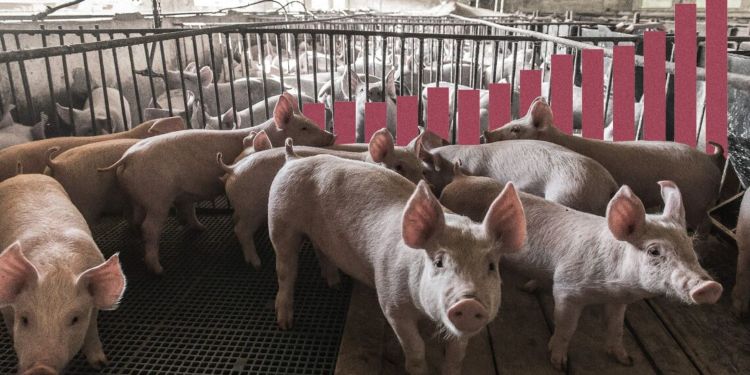Xabier González Barkos
China has announced the imposition of provisional tariffs of between 15.6% and 62.4% on pork and pork products from the European Union. The measure, which will take effect on September 10, is interpreted as direct retaliation for the taxes imposed by Brussels on Chinese electric vehicles. The impact will be significant for Spain, Europe’s leading pork exporter to the Chinese market.
The Chinese Ministry of Commerce justified the decision within the framework of an anti-dumping investigation opened in 2024. According to Beijing, several European companies had sold meat below its market value, which distorted competition. However, EU sources point out that the announcement comes just weeks after the European Commission confirmed tariffs that, added to existing import duties, could rise to almost 45% on electric cars manufactured in China.
The impact will be significant for countries such as Spain, Europe’s leading exporter of pork to the Chinese market. In 2024, sales reached 540,000 tons, valued at over €1 billion, representing around 20% of the sector’s total exports. Among the affected Spanish companies are El Pozo, Noel, Campofrío, Cárnicas Cinco Villas, Friselva, and Sánchez Romero Carvajal, which will face a 20% tariff. The biggest loser will be Litera Meat, which will bear a reduced rate of 15.6%, while other European groups, such as the Dutch company Vion, will see their costs increase with tariffs of up to 32.7%. For companies that did not cooperate with the Chinese investigation, the penalty rises to 62.4%.
The tariffs affect fresh or frozen meat, offal, fat, and other derivatives, although products with limited penetration in the Asian market, such as Iberian ham and cured sausages, are excluded.
In Brussels, the measure has been welcomed as a new chapter in the trade dispute with Beijing. The European Commission had already questioned the legality of the Chinese investigation into other products, such as dairy products and brandy, and has not ruled out resorting to the World Trade Organization (WTO) to stop what it considers an unjustified retaliation. “The EU will always defend its companies and act in accordance with international standards,” said EU sources.
Beijing’s decision puts the European pork industry in a difficult position, facing additional costs and a loss of competitiveness in one of its main markets. Spain, the Netherlands, and Denmark are among the countries most exposed to the restrictions. The sector also fears that the escalation could continue and spread to other agricultural products in a context of inflation and difficulties in foreign trade.
China has reiterated that it is open to dialogue and resolving differences through consultations, but the imposition of these tariffs demonstrates that the struggle between Brussels and Beijing for control of strategic sectors such as electric cars is already leaving collateral victims in the European economy.
